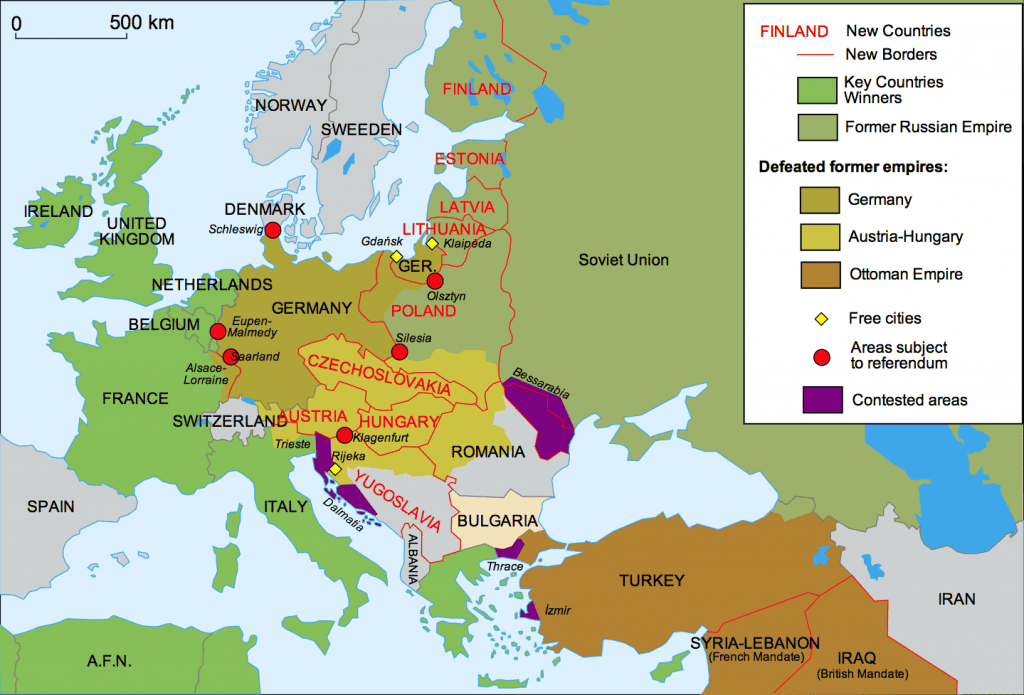
The war led to the collapse of four empires – the Russian, German, Austro-Hungarian and Ottoman. In Britain, it accelerated the breakdown of class barriers in a socially-stratified society where power was concentrated in the hands of a wealthy male elite. This was as true on the local as the national level.
Before the war many men were not eligible to vote because they did not meet the property qualification. But all had been liable to be called for military service. To deny those who had served a vote after the war was untenable. Revolution in Russia and the rise of the Labour party convinced politicians that the electoral system had to be overhauled if revolution was to be avoided. The Representation of the People Act 1918 tripled the size of the electorate to 21 million.
The war also played a part in persuading government to grant the vote to (some) women. In Dorking women had worked on the land, run businesses and voluntary organizations, and been decorated for their services overseas. The local paper had announced that it was no longer justifiable that more than half the population should be excluded from the democratic process.
Life in the town and villages had changed socially and economically. In the mansions that surrounded the town heirs had been lost, fortunes depleted, and houses and gardens neglected as the armies of low-paid servants required to run them were diverted into war work. Many who had experienced other work during the war never went back to domestic service. After the war estate owners sold land, farms and businesses. The mansions never played such prominent role in the life of the community after the war, nor exercised the power over the lives of ordinary people that they had in pre-war days.
Travel and contact with new ideas changed the attitude of ordinary people towards their social ‘betters’. During the war letters to the paper had criticised the patrician disposal by the well-to-do of the lives of their employees; the National Union of Railwaymen had promoted the interests of working people, and trades unions for agricultural labourers had been established in the villages. Peace returned men to their villages more demanding and less willing to bow to the wishes of their elders and ‘betters’.
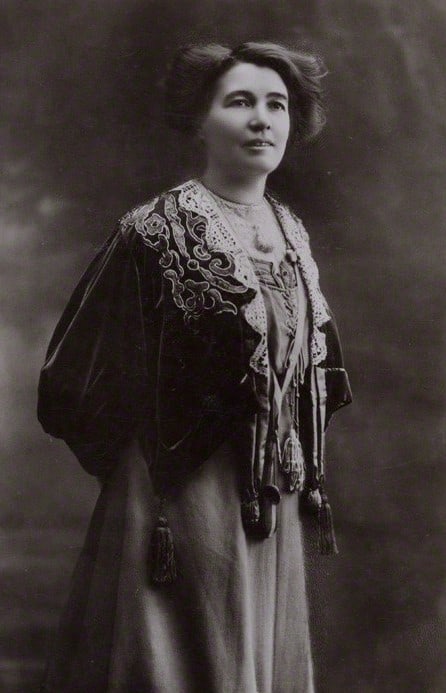
Emmeline Pethick-Lawrence, of the Mascot in Holmwood.
Women over the age of 30 who met certain property criteria were granted the vote in February 1918, and the right to stand for election to Parliament later the same year. The suffragette leader Emmeline Pethick-Lawrence of Holmwood was one of the first women to stand for election to Parliament. In the general election of December 1918 she stood as the Labour Party candidate in a Manchester constituency.
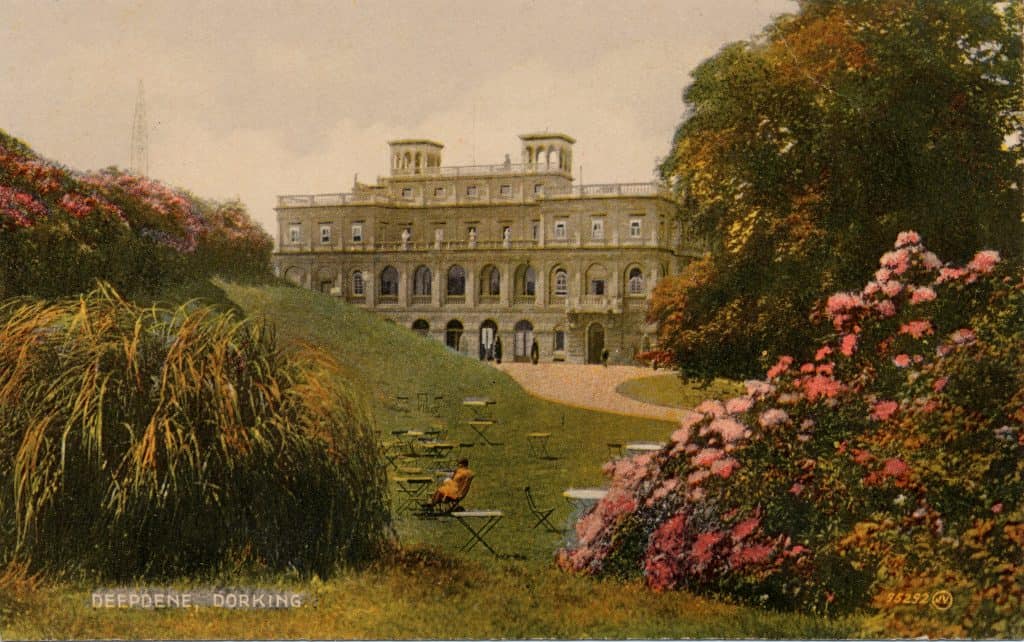
The Deepdene
The greatest of Dorking’s mansions, Deepdene, had employed hundreds in its farms, gardens, stables and in the mansion. But it never returned to residential use after the war, which compounded years of neglect by the Duke of Newcastle. Its lands were sold off in lots, much of it for housing. With the advent of mass tourism in the 1920s, it became a hotel.
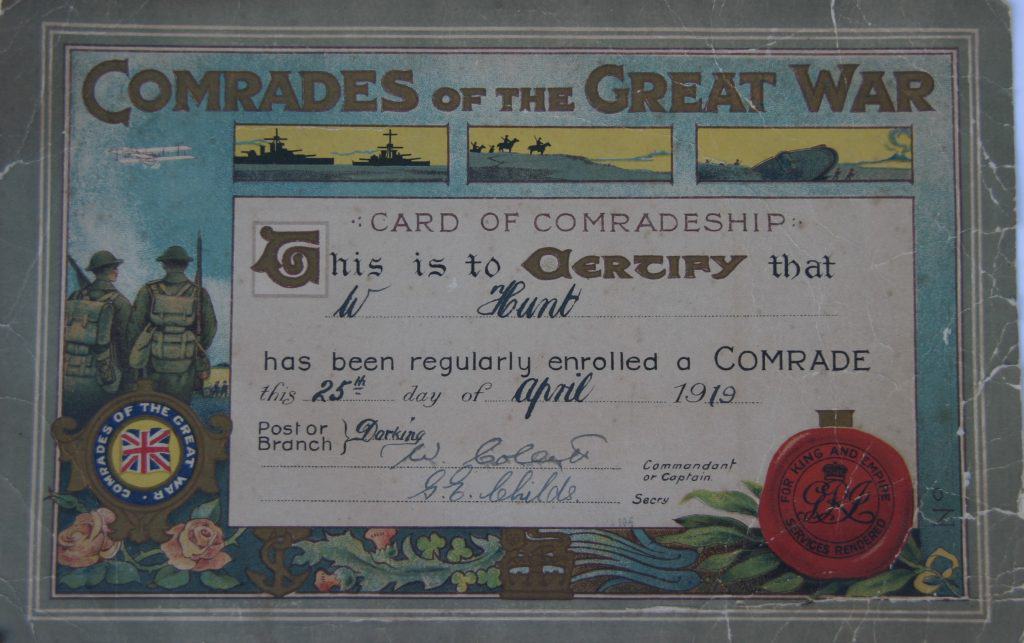
Comrades of the great war membership card
Returning soldiers came together to support one another in organizations like the Comrades of the Great War. The Comrades took on the wealthy establishment of South Holmwood in 1920 when ex-soldiers were refused alcohol in the village hall. In the past the descendants of the vicar who had established the club (and who lived in Somerset) had had more of say in its operations than the villagers who used it, but men returning from the war were not so willing to bow to the wishes of their social ‘betters’.
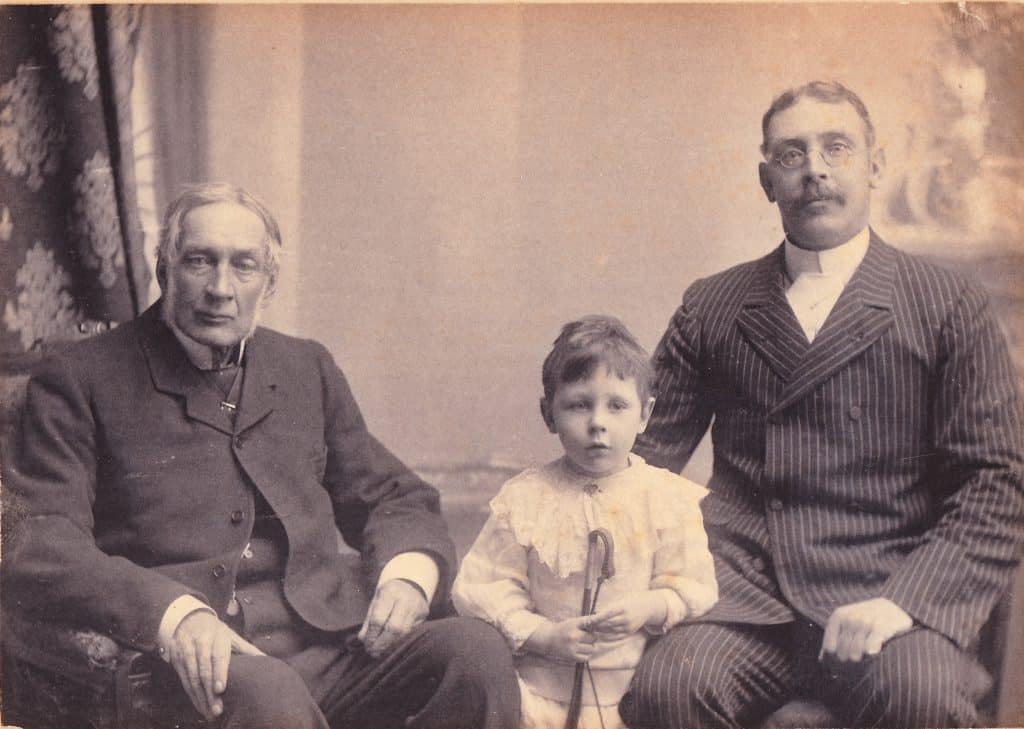
The Lee Steere family
Britain’s losses were estimated to be 700,000 men. Young officers had a shorter life expectancy than the ranks and the impact of the war was felt hard in the landed estates where younger sons inherited holdings and family businesses. It was the 4th son of Lord Ashcombe, Roland, who finally inherited Denbies after the deaths of his three older brothers. Other families found themselves without a direct heir: the Lee Steeres of Jayes Park had to turn to a relative in Australia when John Lee Steere, seen here with his father and grandfather, was killed as he was the only child of an only child.
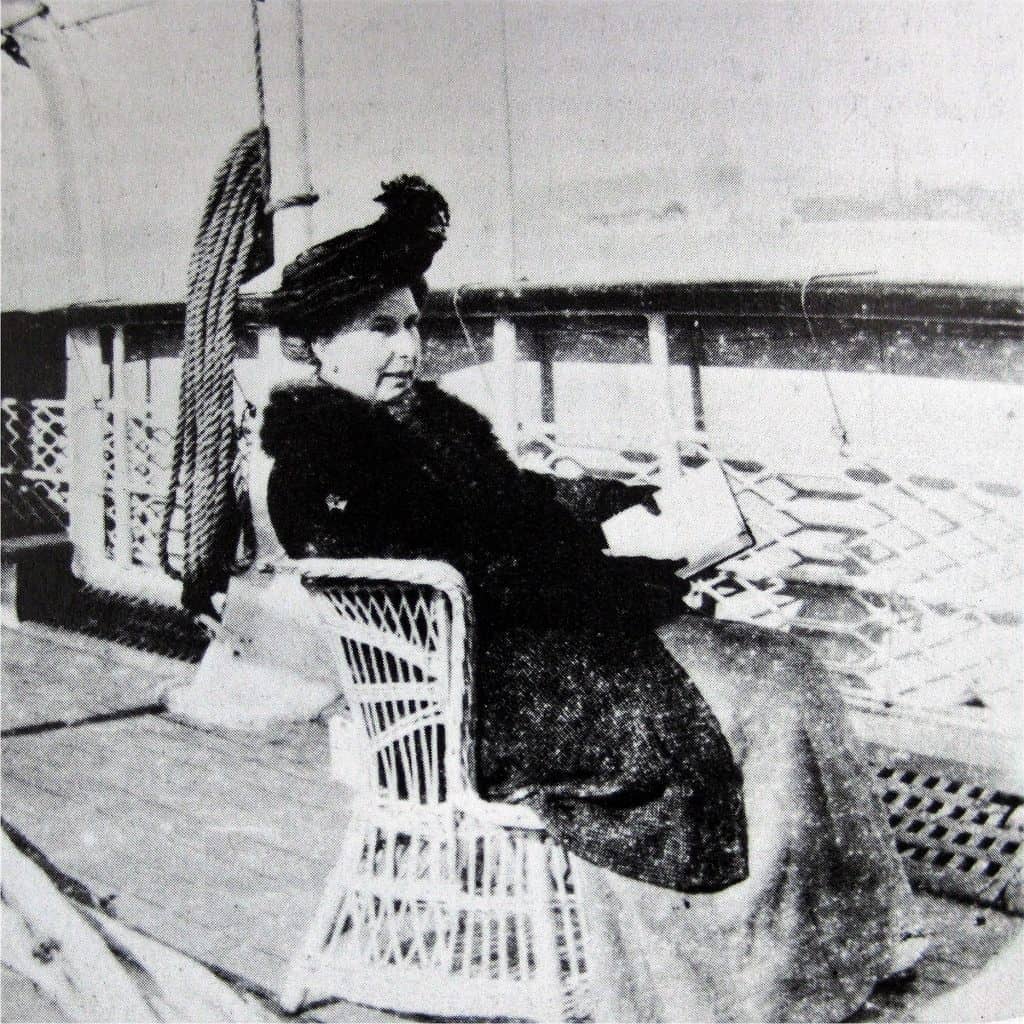
Bertha Broadwood
Bertha Broadwood of Lyne House in Capel, anti women’s suffrage campaigner and founder of the Holt-Ockley village nursing organization, wrote a poem to celebrate victory:
Whom have we British fought? The Devil incarnate.
First temper, then forceful driver of a slave,-
A would-be tyrant over kingdoms, Church and state, –
A maniac: manacled ‘gainst mercy’s sign to save!
How have we fought? – Beside our foes of but ten decades past,
Starting mere thousands! Despised of many-millioned enemy
Who dreamt of crushing Britain’s power, then France at last –
After some forty years of ‘peaceful’ pushing treachery –
with all his devil-master’s will to spoil and damn,
Through abuse of Heaven – born laws of science and of art,
Regardless of honour’s faith towards God, or man,
Fiendishly confident to cowe, or kill man, body, soul and heart.
And God our hope, wearied by braggart’s blasphemies
Has justified His word, as each free nation now rejoicing sees.
There is no sign in Bertha’s tortuous verse of any appreciation of the changes that the war had brought, or anticipation of the changed circumstances that its aftermath would bring to the post-war world. As far as Bertha and many others were concerned it was ‘job done’ and back to normal.
Last : Commemoration
Next : Destitution

